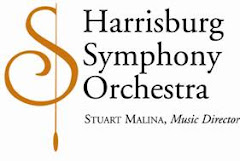 |
| Stuart Malina with Summermusic 2010 |
But neither are summer concerts.
After a successful run of six outdoor concerts with the Harrisburg Symphony throughout the region over the week of the 4th of July, Stuart Malina will join some symphony colleagues to play chamber music with Market Square Concerts’ Summermusic 2012 starting Friday night at 8pm in the air-conditioned Market Square Church (even the free parking is under a roof), then continuing Sunday afternoon at 4pm at the air-conditioned Rose Lehrman Arts Center of HACC. The final concert of the series will be Wednesday at 6pm (that’s 6:00) back at Market Square Church.
(The photograph was taken at the Glen Allen Mill two years ago when the high temperature the day before was 95° and, though a tad cooler for this concert, it felt like the dew point was about the same... Concerts are no longer being held at the picturesque mill along a beautiful stretch of the Yellow Breeches, mostly because the space turned out to be not only too cramped for the musicians but also for the continually growing audience, over the years. In fact, the photo was taken during Stuart's introduction to the work he referred to as Schubert's "Sardine" Quintet.)
You can read more about the series by following these links: Ellen Hughes’ column Art and Soul at the Patriot-News, Market Square Concerts’ Blog: Summermusic 2012 – The Perfect Antidote to Heat Frustration plus up-close posts about Ravel’s Mother Goose and the Beethoven Quintet for Piano and Winds.
Stuart will be joining several members of the Harrisburg Symphony for these concerts, including Market Square Concerts’ Artistic Director Peter Sirotin, recently appointed acting concertmaster of the Harrisburg Symphony, principal cellist Fiona Thompson, hornist Geoffrey Pilkington and bassoonist Peter Kolkay who’s played in the orchestra before, in addition to Market Square Concerts’ Executive Director, pianist Ya-Ting Chang. Oboist Gerard Reuter, clarinetist Christopher Grymes, and violist Michael Stepniak are also part of the resident ensemble.
On the first program, Stuart and Ya-Ting will play two delightful piano duets – Poulenc’s saucy Sonata and Ravel’s suite inspired by fairy tales, Mother Goose, originally composed for children to play. Then he will join with the wind players for Beethoven’s Quintet for Piano & Winds, an early work that demonstrates the composer’s love of Mozart.
On Sunday’s program, Stuart and the string players perform Antonin Dvořák’s Piano Quartet in E-flat, Op. 87, just as tuneful but not as well-known as his Piano Quintet, Op. 81. Also on the program are the Three Madrigals written for violin and viola by Bohuslav Martinu and a movement of a more recent piece by Augusta Read Thomas, a contemplative movement from her “Rumi Settings,” followed by the Phantasy Quartet for Oboe and Strings by Benjamin Britten.
(If the tune "Raindrops Keep Falling on My Head" has been going through your mind this weekend, then you've experienced One Degree of Separation with a composer on this program: Burt Bacharach once studied with Bohuslav Martinu!)
The third program will feature three movements from different string trios by Beethoven (written around the same time as the Quintet), performed in collaboration with Cary Burkett reciting the poem Sonata by Lucy Miller Murray.
Then, no doubt for most listeners in the audience, two more discoveries: a string trio written in 1927 by the Finnish composer Erkki Melartin whose career was overshadowed by his compatriot, Jean Sibelius; and a piano quintet composed by Richard Strauss, famous for his tone-poems and operas, written when he was 20 and just starting his career as a composer.
One of the things Stuart loves about playing chamber music is the communication that develops between the players, things you sense and respond to spontaneously.
On a larger scale, it also improves the symbiotic nature of music-making in the orchestra, listening to each other and bringing that spontaneity to a live performance that generates a more satisfying experience for the players but also a more engaging experience for the listener.
“Good orchestral playing is like chamber music, with musicians sensitively reacting and interacting with each other,” Peter Sirotin told Ellen Hughes. Market Square Concerts and the Harrisburg Symphony Orchestra are an excellent example of a mutually beneficial collaboration.
- Dick Strawser

